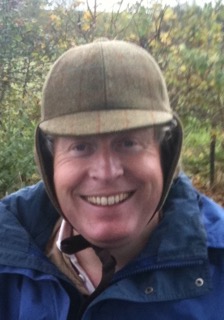- Speaker
- Prof. Matthew Turner
- University of Warwick, UK
- Abstract
We analyse the coupling between hydrodynamic flows and geometry on fluid membranes. We identify a shape instability that occurs for sufficiently large membrane shear gradients on curved geometries that is hydrodynamic in origin. Of particular interest is the case of a membrane tube, similar to the environment near the neck of a budding endocytotic vesicle. Polymerised Dynamin in vivo is thought to play a crucial role in catalysing the final topological reconnection process during budding, separating the newly formed vesicle. When Dynamin is hydrolysing GTP in its polymerised state, while attached to a membrane tube, it both constricts and (counter)rotates the tube. The possible role of constriction in driving reconnection has been discussed at some length, although this is still not well understood. The possible role of its rotation in the reconnection process has not previously been studied. This rotation induces azimuthal shear gradients along a membrane tube. We predict that Dynamin may be able to drive a membrane instability on a tube (neck), initially helical in character. We speculate that non-linear growth of this instability could lead to a rapid increase in membrane tension and hence tube fission. Our predictions can be tested in vitro, e.g. using magnetic tweezers on membrane tubes pulled from aspirated giant vesicles.
- About the Speaker
Matthew Turner obtained his PhD from Cambridge University in 1991 under the direction of Prof Mike Cates, now Lucasian professor. He later studied with Prof Jean-Francois Joanny before taking independent fellowships at UCSB and Rockefeller University in the USA. He has been a Fellow of Trinity College, Cambridge, a Royal Society University Research Fellow and, most recently, an EPSRC Leadership Fellow. He is currently a full professor of Physics and a member of the "Centre for Complexity Science" at Warwick University in England. In recent years he has held various visiting positions, including the Joliot-Curie and Mayant-Rothschild chairs at ESPCI and Institut Curie in Paris. His interests lie in soft and active matter physics and their interface with living systems.
- Date&Time
- 2019-03-20 4:45 PM
- Location
- Room: A203 Meeting Room




